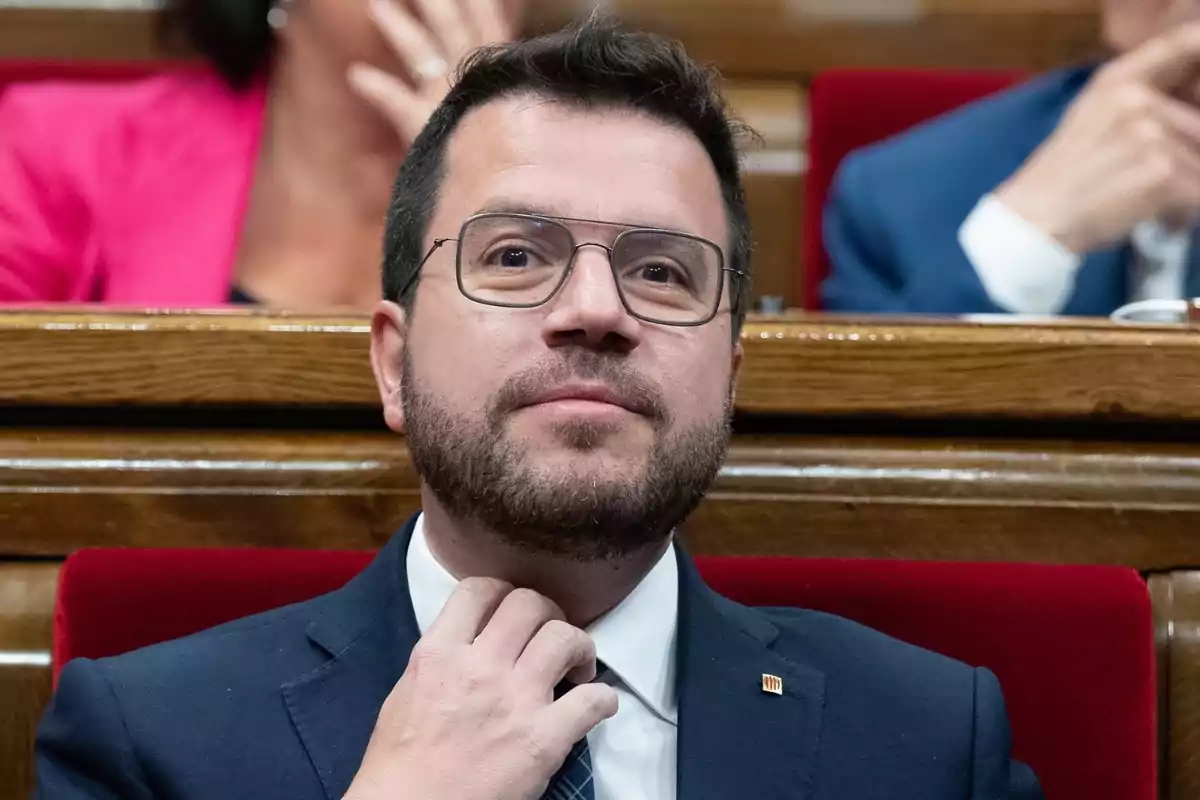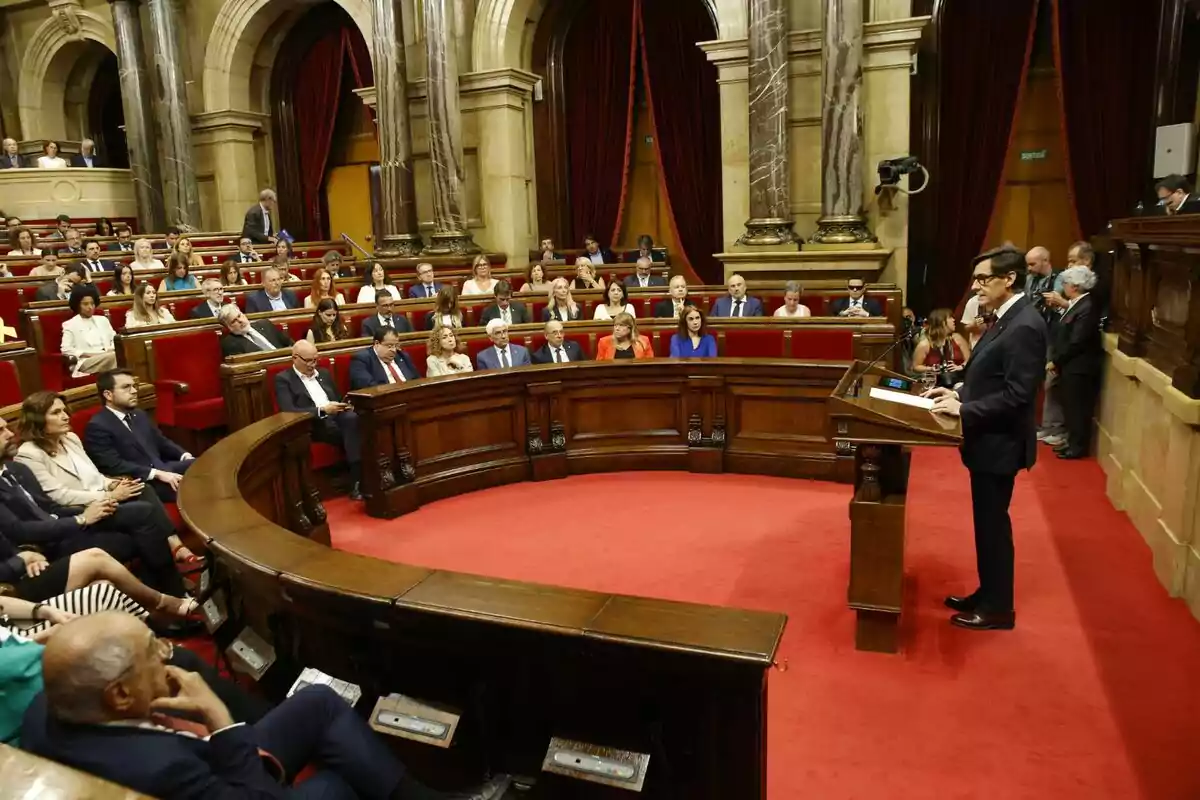
ERC's backpack is starting to be too heavy for Salvador Illa
Catalonia remains in the hands of ERC and the Comuns, and this mortgages the great transformation projected by PSC
This has been a complicated week for Salvador Illa. It started with his appearance in Parliament due to the blackout crisis, and ended with the confrontation between his partners over the tourist tax. Little by little, Illa is starting to resemble Pere Aragonès and his fiction of governing placidly with ERC and Comuns is fading.

Illa assumed the presidency of the Generalitat with the mandate to avoid the mistakes that had condemned the previous ERC government. This led him to base his mandate on successful management and maximum consensus to face challenges. But the outbreak of several crises in the first months, and his erratic alliance strategy, have weakened his position.
By tying himself to ERC and Comuns, he not only entrusted his fate to the weakest link in Parliament, but also prevented any consensus with the rest of his forces. Despite the narrative of breaking with the Procés, the Illa government is being a continuation of the previous executive. Not only ideologically, but also in inertia and ways of doing things.
The danger of ending up like Aragonès
The only thing that differentiates Illa from Aragonès is the contrast between the conciliatory nature of the former and the arrogance of the latter afterwards. One of Aragonès's mistakes was believing he could govern behind Parliament's back with only 33 deputies. Illa governs with 42, but he understood that he had to reach out to create majorities.
He soon realized that, in the midst of Parliament's ideological polarization, reconciling the left with the right was a chimera. He then chose to cling to ERC and Comuns, thinking that the weakness of both made them reliable partners. The housing pact, with the CUP included, seemed to give him the desired parliamentary stability.
But he underestimated the volatility of Comuns, who had already brought down the republican government due to a pride attack with Hard Rock. Now they have once again blown up the government alliance by confronting ERC over the tourist tax. This has opened a new crisis in the executive and has shown that it remains weak and unstable.
Chronic crisis and instability
PSC thus receives one of the poorest legacies from ERC, that of chronic instability that led to institutional paralysis and political decay. Beyond the narrative, little has changed in the way of proceeding. Last-minute negotiations, last-minute agreements, and a policy conditioned by radical minorities continue.

As if that weren't enough, PSC is dragging another crisis caused by ERC, which could end up costing them dearly. It is about the corruption surrounding the Directorate General for Child and Adolescent Care (DGAIA). Although it occurred under ERC's direction, PSC is dragged down by the forced silence pact with its priority partner.
Now the opposition sees the weakness of the Govern and corners it to take measures on this matter. It is an example of the price Illa is paying to entrust his government to the parties most punished in the last elections.
The ideological burden also weighs
Although ERC's heavy burden is also ideological, and this is preventing PSC from leaving its mark on the new government. The most flagrant case is that of security. Illa promised to make a shift in Interior, but at the first opportunity, it has been shown that he is incapable of even providing legal security to the agents.
The same happens with energy, where this week ERC made it clear to Illa that they would not allow a step back in the ecological transition. PSC has also been forced to buy into ERC and Comuns's model in housing and tourism. It has even yielded on issues such as Catalan delegations abroad (the famous embassies) and the controversy of the delegate in northern Catalonia.
This mortgages the ambitious project of transformation for Catalonia that Illa presented to Parliament last August. Because in practice, the same logics and the same ideological engine continue to operate. This, for example, compromises Illa's relationship with entrepreneurs and the deployment of his economic measures.
Illa governs without budgets, with a fragile minority, and with increasingly radicalized and internally conflicted partners. The consequences may end up being paid by Illa himself if he ends up like Aragonès. But for now, they are being paid by the Catalans.
More posts: